Food inflation entered the negative zone at (-) 3.36 per cent for the week ended December 24 as prices of essential items like vegetables, onion, potato and wheat declined.
"There has been substantial improvement. Food inflation has turned negative for the first time in recent memory," Finance Minister Pranab Mukherjee told reporters in New Delhi on Thursday.
This is the first time in almost six years, for which data with base year 2004-05 is available, that food inflation has shown a decline on an annual basis.
Food inflation, as measured by Wholesale Price Index, stood at 0.42 per cent in the previous week.
It was almost 21 per cent in the corresponding week of 2010.
. . .
What is negative inflation? Food inflation at -3.36%
Image: A vendor arranges vegetables at a market in Siliguri.Photographs: Rupak De Chowdhuri/Reuters
According to the official data released on Thursday, onion became cheaper by 73.74 per cent year-on-year during the week under review, while potato prices were down by 34.01 per cent.
Prices of wheat also fell by 3.41 per cent.
Overall, vegetables became 50.22 per cent cheaper during the week ended December 24.
The fall in the rate of price rise of food items has been substantial since the first week of November, when it stood at double-digit.
Experts feel that the decline in food inflation will be a major incentive for the Reserve Bank to look at the option of key interest rate cuts at its next quarterly monetary policy review later this month.
. . .
What is negative inflation? Food inflation at -3.36%
Image: Reserve Bank of India Governor Duvvuri Subbarao.Photographs: Punit Paranjpe/Reuters
What is negative inflation?
Low inflation does not mean that prices will remain low: it means that prices are rising at a slower pace than before.
Negative inflation can also be termed as deflation.
Deflation is a fall in the price of goods and services.
Deflation occurs when the inflation rate falls below zero per cent.
This is the opposite of inflation.
When the inflation rate is negative, the economy is in said to be in a deflationary period.
This is when there is less money (supply of money) chasing the same amount of goods and services, leading to the increase in the value of the money.
Disinflation is when there is a slowdown of inflation but there is still inflation.
So why does deflation take place?
. . .
What is negative inflation? Food inflation at -3.36%
Image: Grain bags at a shop in Mumbai.Photographs: Arko Datta/Reuters
Why does deflation happen?
A fall in spending -- it could be personal spending or a cut in government expenditure -- leads to deflation. The decline in the supply of money and credit thus leads to deflation.
So, if money-supply decreases; supply of other goods increases, demand for money rises, and the demand for other goods slips, it is deflation.
So, if money-supply decreases; supply of other goods increases, demand for money rises, and the demand for other goods slips, it is deflation.
Why is it bad for the economy?
Deflation is a fall in the price of goods and services. Deflation occurs when the inflation rate falls below zero per cent. This is the opposite of inflation.
When the inflation rate is negative, the economy is in said to be in a deflationary period.
What are the effects of deflation?
. . .
What is negative inflation? Food inflation at -3.36%
Image: A farmer works in a field, sifting the wheat from the chaff.Photographs: Reuters
What are the consequences of deflation?
Deflation leads to a lower level of demand in the economy. It increases the real value of money. It also increases unemployment.
The main effect of deflation is that it gives people a huge incentive not to buy goods.
This means that if something costs Rs 100 today, it will cost only Rs 95 next week, thus making people hold off their purchases.
The good news is that gives people an incentive to save money.
But as fewer people buy, manufacturers are left with excess inventory.
That means they need to reduce their supply, which means they can either stop manufacturing, which causes factory closures and layoffs, or they can reduce prices even further.
But the latter causes even more deflation, leading to lower spending, leading to more deflation.
. . .
What is negative inflation? Food inflation at -3.36%
Image: A farmer walks through his sunflower crop in a farm at Dayalpura village in Punjab.Photographs: Ajay Verma/Reuters
Once an economy is caught in this deflationary spiral, it is very hard to climb out.
That's why many economists are more worried about impending deflation rather than inflation.
Deflation also slows down business development as entrepreneurs are less likely to invest in new business plans if they see a trend towards lower profit margins.
As noted in a earlier post, deflation is more of a hinder to a strong economy than inflation.
In a deflationary environment, those sectors with a high proportion of variable costs are likely to benefit from falling input prices, according to Goldman Sachs.
. . .
What is negative inflation? Food inflation at -3.36%
Image: A worker at a gas station counts currency notes.Photographs: Amit Gupta/Reuters
Is deflation good for you as prices may drop?
A fall in the prices may sound good for consumers. But it is not actually good. The lack in demand may push companies to further lower prices.
This can lead to a situation where the prices of product fall bellow the cost of manufacturing a product. This in turn forces the companies to cut production, slash jobs and shut down business till demand picks up. This worsens the situation.
. . .

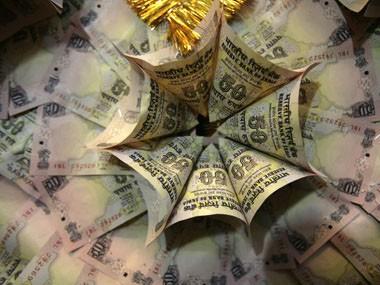
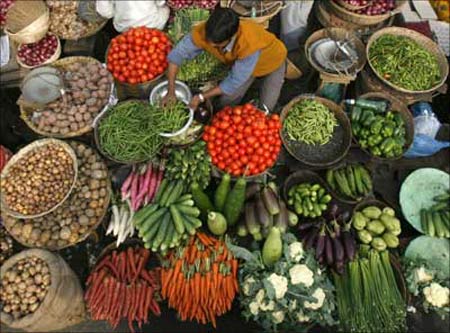
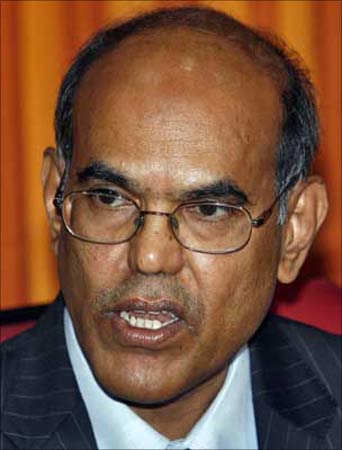
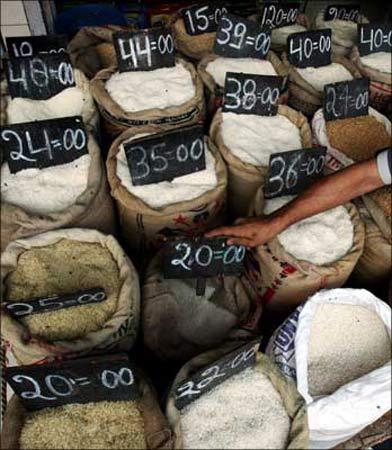
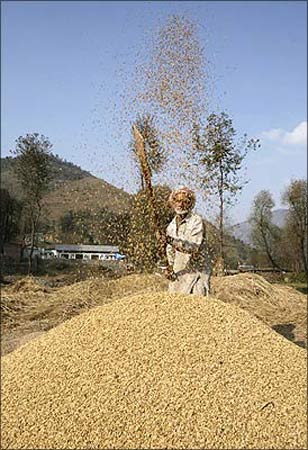
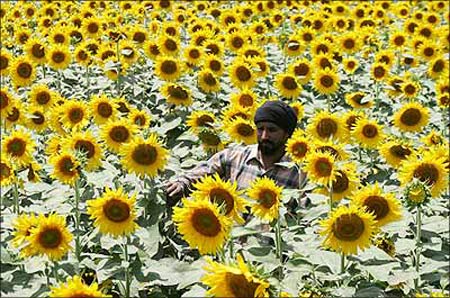
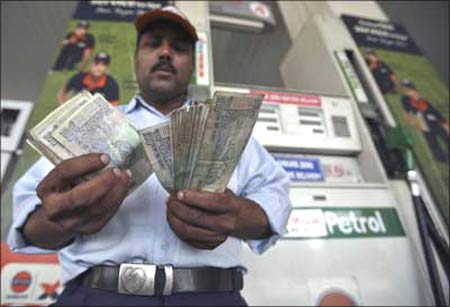
article